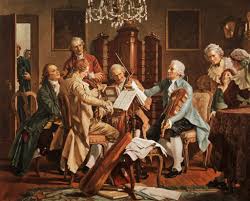There is something sublime, if not mystical, regarding hearing a good symphony orchestra. A listener can be impressed by the assemblage of the musicians on stage, the positioning of the concertmaster and the work of the conductor. On October 28, 2018, I got to witness all of these dynamics at play with the Princeton Symphony Orchestra.
Before a full house at Alexander Hall on the Princeton University campus, the orchestra along with conductor Marcelo Lehninger and Pianist Inon Barnatan performed a spellbinding program of both Beethoven’s Piano Concerto No. 3 in C Minor, Op. 37 and Piano
Concerto No. 5 in E-Flat Major, “ Emperor “.
Watching the orchestra along with the interplay of Lehninger, Barnatan and Concertmaster Dora Dmitrova was an absolute joy. These musicians obviously loved this romantic period music and performed with great passion, vigor and at times subtlety.
The Piano Concerto No. 3 in C minor, Op. 37, was composed by Ludwig van Beethoven in 1800 and was first performed on 5 April 1803, with the composer as soloist.
Piano Concerto No. 3 (Beethoven) – Wikipedia
https://en.wikipedia.org/wiki/Piano_Concerto_No._3_(Beethoven
The Piano Concerto No. 5 in E♭ major, Op. 73, by Ludwig van Beethoven, popularly known as the Emperor Concerto, was his last completed piano concerto. It was written between 1809 and 1811 in Vienna, and was dedicated to Archduke Rudolf, Beethoven’s patron and pupil. The first performance took place on 13 January 1811 at the Palace of Prince Joseph Lobkowitz in Vienna, with Archduke Rudolf as the soloist,[1] followed by a public concert on 28 November 1811 at the Gewandhaus in Leipzig under conductor Johann Philipp Christian Schulz, the soloist being Friedrich Schneider.[2][3
Piano Concerto No. 5 (Beethoven) – Wikipedia
https://en.wikipedia.org/wiki/Piano_Concerto_No._5_(Beethoven)
The Sunday afternoon concert displayed a rich contrast between sections that burst with rippling sound and then interplay with the piano that echoed a lullaby quality. There was effective use of oboe and horns.
During the Emperor Concerto the adagio section revealed a tranquil, meditative feel. As I was listening to these finely crafted compositions performed, I thought:
“Yes, music does indeed rewire our neurons “
Currently, with all of the conflict and division occurring in our world and in our society, it is a gift to hear timeless music that helps not only to restore one’s soul, but also to gain perspective regarding time.
Yes, the Beatles once said “ Roll Over Beethoven “ and Paul McCartney once said “ Let Me Roll It “.
Maybe, it’s time for Beethoven to roll over us and penetrate our mind, our heart and our limbic system with his beauty and hope and optimism.
Our world needs that and so do we.
May it be so.


